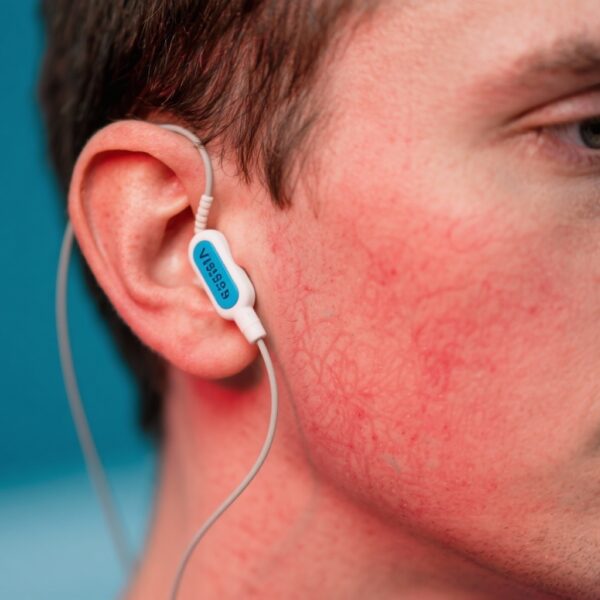Highlight
- The FDA approved golimumab (Simponi), a TNF-alpha inhibitor, for pediatric patients with moderately to severely active ulcerative colitis weighing at least 15 kg.
- The approval is supported by the open-label phase 3 PURSUIT 2 trial showing 32% clinical remission at week 6 and 57% remission maintenance at week 54.
- Golimumab demonstrated favorable safety profiles consistent with adult use and can be self-administered by children aged 12 or older after training.
Study Background
Ulcerative colitis (UC) is a chronic inflammatory bowel disease characterized by inflammation limited to the colonic mucosa, leading to symptoms such as bloody diarrhea, abdominal pain, and urgency. In the United States, more than 1 million individuals are affected by UC, including approximately 20% who are children. Pediatric UC often has a more aggressive disease course than adult-onset disease, with a significant impact on growth, development, and quality of life.
Treatment options for pediatric UC remain limited compared to adults, underscoring a critical unmet need for effective and well-tolerated therapies. Tumor necrosis factor-alpha (TNF-alpha) inhibitors have become an integral part of treating moderate to severe UC in adults. Golimumab, a fully human monoclonal antibody targeting TNF-alpha, has shown efficacy in adult UC but lacked a pediatric indication until recently.
Study Design
The pivotal evidence for golimumab’s pediatric approval comes from the open-label PURSUIT 2 phase 3 study. This trial enrolled children aged 2 years and older with moderately to severely active UC who weighed at least 15 kg. The study assessed the subcutaneous administration of golimumab, focusing on evaluating efficacy, safety, and pharmacokinetics in this population.
The primary endpoint was clinical remission at week 6, defined by a Mayo score of ≤ 2 points with no subscore > 1. Secondary endpoints included clinical response at week 6—defined as a >30% reduction and >3-point decrease in the Mayo score with improvement in the rectal bleeding subscore—and endoscopic improvement, defined by an endoscopy subscore of 0 or 1.
Dosing was stratified by weight: children weighing at least 40 kg received an induction dose of 200 mg at week 0 followed by 100 mg at weeks 2 and 6, then every 4 weeks; those weighing 15 to <40 kg received 100 mg at week 0 followed by 50 mg at weeks 2 and 6, then every 4 weeks.
Key Findings
At the primary endpoint of 6 weeks, 32% of children achieved clinical remission according to the stringent Mayo score criteria. This outcome marks a meaningful achievement given the challenge of inducing remission in pediatric UC patients. Furthermore, 58% of children exhibited a clinical response at week 6, demonstrating substantial symptomatic improvement.
Endoscopic improvement, a critical marker of mucosal healing and long-term prognosis, was observed in 40% of patients at week 6, indicating that golimumab impacts not only clinical symptoms but also underlying disease pathology.
Among the responders who achieved clinical remission by week 6, 57% maintained remission through week 54, highlighting the durability of golimumab therapy in this pediatric cohort.
Safety outcomes were consistent with adult trials of golimumab in UC. Adverse events were manageable and no new safety signals were identified. The prefilled syringe administration route facilitates ease of use, and children aged 12 or older can self-administer after appropriate training, which may improve adherence and quality of life.
Expert Commentary
This FDA approval fills a significant gap in pediatric UC management, providing clinicians with an additional biologic agent that has demonstrated efficacy and safety in controlled clinical settings. The PURSUIT 2 trial’s open-label design, while pragmatic, limits the availability of comparator data but nonetheless delivers crucial real-world evidence supporting golimumab’s use.
Mechanistically, targeting TNF-alpha remains a validated therapeutic approach in UC, with golimumab offering an alternative to infliximab and adalimumab, potentially addressing patient preference and tolerance issues.
Future studies comparing golimumab directly with other biologics and exploring its role in combination strategies or earlier lines of therapy in pediatric UC will further refine treatment paradigms.
Conclusion
The FDA approval of golimumab (Simponi) for moderately to severely active pediatric UC represents a valuable advancement in pediatric gastroenterology. Backed by robust evidence from the PURSUIT 2 phase 3 study, this TNF-alpha inhibitor offers an effective and well-tolerated treatment option that can achieve sustained clinical remission and endoscopic improvement.
Clinicians should consider patient weight, disease severity, and ability to manage self-injection when selecting golimumab. This development expands the therapeutic arsenal against pediatric UC and supports improved long-term outcomes in this vulnerable patient population.
References
1. Hyams JS, et al. Safety and efficacy of golimumab in pediatric patients with moderately to severely active ulcerative colitis: results from PURSUIT-Peds. Presented at Digestive Disease Week (DDW) 2023.
2. FDA News Release. FDA approves Simponi (golimumab) for pediatric ulcerative colitis. April 2024.
3. Rubin DT, et al. Ulcerative Colitis: Epidemiology, Pathophysiology, and Therapeutic Opportunities. Gastroenterology. 2022;162(5):1429-1445.
4. Sandborn WJ, et al. Golimumab Induction and Maintenance Therapy for Ulcerative Colitis. N Engl J Med. 2014;370(14):1304-1313.
5. Turner D, et al. Management of Pediatric Ulcerative Colitis: A Global Pediatric IBD Consensus. J Pediatr Gastroenterol Nutr. 2023;76(2):235-249.



